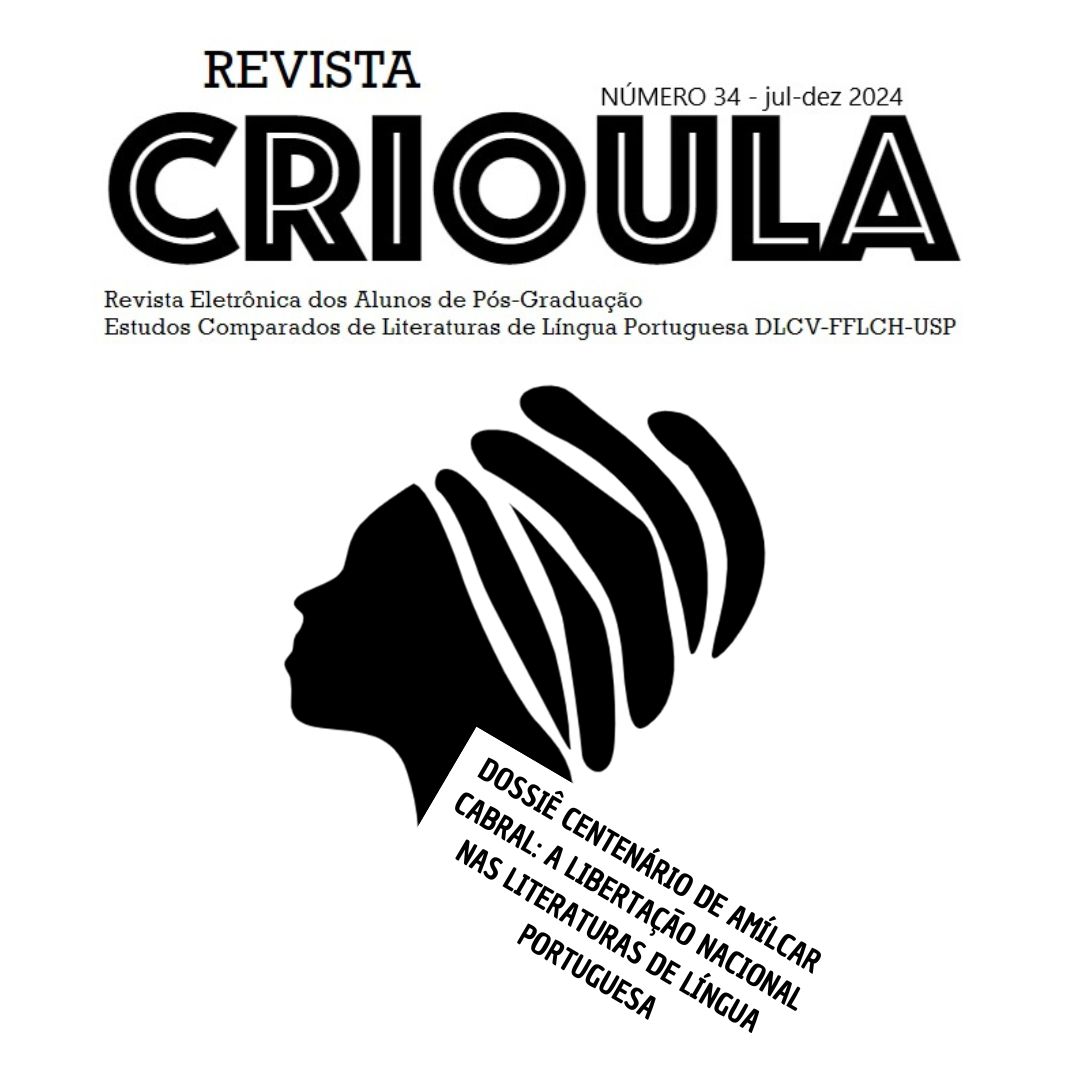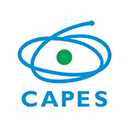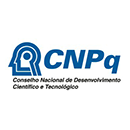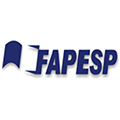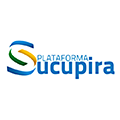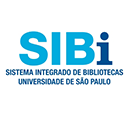I – COMPOSITION OF THE PROGRAM COORDINATION COMMISSION (CCP)
The CPP is compound by 4 (four) senior researcher’s advisors accredited in the Program, and one of them is the Coordinator of the Commission, another one as his/her substitute and one representative of the student body. Each titular member must have a substitute.
II – SELECTION CRITERIAS
II.1 Proficiency in a foreign language
The proficiency in a foreign language is required during the selection process, according to the item V of this standard.
II.2 Requirements for the Master Degree
In addition of holding an Undergraduate degree in the domain of Letters or in a related domain, the applicant for the Master Degree must be approved in a selective process that contains the following eliminatory phases: foreign language proficiency test, specific knowledge test, research project analysis and résumé analysis, whose values will be defined by a selection specific public notice. Dates, criteria to calculate the scores of each phase and detailed information concerning the process will be stated in a specific public notice made by the CPP and released in the Program’s website and in the State of São Paulo’s official journal. According to the availability of the researches advisors and number of available vacancies and stated in the public notice of the selection process, the candidates who have obtained a score equal or superior to 6 (six) in a scale from 1 to 10 may be accepted. The final score will be formed by three scores (specific test, project analysis and résumé analysis), all of them also ranging from 1 to 10, whose values (e.g. double or single) will be established in a specific public notice for the selection process.
II.3 Requirements for the Doctorate
Besides holding a recognized and stricto sensu Master Degree, the Doctorate candidate must be approved in a selective process that contains the following phases: foreign language proficiency test, specific knowledge test, research project analysis and résumé analysis, whose values will be defined by a selection specific public notice. Dates, criteria to calculate the scores of each phase and detailed information concerning the process will be stated in a specific public notice made by the CPP and released in the Program’s website and in the State of São Paulo’s official journal. According to the availability of the researches advisors and number of available vacancies and stated in the public notice of the selection process, the candidates who have obtained a score equal or superior to 7 (seven) in a scale from 1 to 10 may be accepted. The final score will be formed by three scores (specific test, project analysis and résumé analysis), all of them also ranging from 1 to 10, whose values (e.g. double or single) will be established in a specific public notice for the selection process.
II.4 Requirements for direct Doctorate application (candidates without a Master’s degree)
There is no selective process for direct applicants in this modality. The Graduate Program of Compared Studies in Portuguese-language Literature only accepts the direct transference to the Doctoral degree for students already enrolled in the Master degree, specifically when the majority of the qualification committee members indicates the transference and the candidate is eligible to meet the requirements of the referred transference.
III – TIME LIMITS, DEADLINES AND TERMS
III.1 – In the Master degree, the time limit to make the deposit of the dissertation is 36 (thirty-six) months.
III.2 – In the Doctorate degree, the time limit to make the deposit of the thesis is 46 (forty-six) months, for students who hold a Master degree.
III.3 – Only in the case of a direct Doctorate degree (for students who did not previously earned the Master degree), the time limit to make the deposit of the thesis is 54 (fifty-four) months.
III.4 – In any of the degrees, and considering exceptional cases properly justified, the students can apply for a time limit extension for the maximum period of 120 (one hundred and twenty) days. The referred time extension will be permitted only for students who have completed the totality of the required credits in courses and have been approved in the Qualification Exam.
IV – MINIMUM OF CREDITS
IV.1 – For the Master degree, 96 (ninety-six) credits will be required for completion of the course, of which 24 (twenty-four) must be completed by attending courses, and 72 (seventy-two) in the dissertation.
IV.2 – For the Doctoral degree of students who hold a title of Master, 176 (one hundred and seventy-six) credits will be required for completion of the course, of which 16 (sixteen) must be completed by attending courses, and 160 (one hundred and sixty) in the thesis.
IV.3 – For the direct Doctoral degree (students who did not previously earn a Master title), 192 (one hundred and ninety-two) credits will be required for completion of the course, of which 32 (thirty-two) must be completed by attending courses, and 160 (one hundred and sixty) in the thesis.
There is the possibility to concede, as special credits, the maximum of 4 (four) credits for the Master degree, 4 (four) credits for the Doctoral degree and 4 (four) credits for the direct Doctoral degree. Those credits are specified in the item XVII – Other standards of this regulation.
V – FOREIGN LANGUAGE
The candidates must demonstrate proficiency in English, French, Spanish, Italian or German, not only for the Master degree, but also for the Doctorate.
V.1 – To be approved in the foreign language proficiency test, the candidate must demonstrate the ability to interpret a text on the language(s) that he/she subscribed.
V.2 – The foreign language proficiency tests are offered and applicated by the FFLCH’s Language Center, according to specific guidelines of the annual public notice. The minimum score to be approved in the exams is 5,0 (five). The exam applied by FFLCH’s Language Center expires in 2 (two) years.
V.3 – The candidates can be excused of the foreign language proficiency test by presenting the approval in one of the following tests, whose validity must not exceed the maximum period of 2 (two) years before the Master or Doctoral selection:
German: Groβes Deutches Sprachdiplom, Kleines Deutsches Sprachdiplom, of the Goethe Institute; English: TOEFL, IELTS, Cambridge, Michigan; Spanish: CELU, DELE (Cervantes Institute); Italian: CILS; French: Nancy 3 or DALF (Alliance Française); TCF (Cendotec).
The minimal score or mention required to accept the results of the referred tests will be released in a specific public notice on the Program’s website and on the State of São Paulo’s Official Journal. Other exams and its respective minimal scores could be evaluated by the CPP through an applicant’s request.
V.4 – In accordance with the University of São Paulo’s Graduate Regiment, foreigner students must have the proficiency in Portuguese language, one of the steps of the selective process, attested by a test applied by the FFLCH’s Language Center. It is mandatory for the applicant the approval in the advanced level, or even through the Celpe-Bras (MEC) test, also requiring the advanced level of Portuguese. Foreigner applicants originally from a country which native language is Portuguese are dismissed from the referred test, with the agreement of the research advisor and the CCP.
VI – COURSES
VI.1 – The accreditation or re-accreditation of courses is based on the analysis of the Program content, compatibility with the research lines of the Program, bibliographical update, résumé of the Faculty members and circumstantial advice from a reporter, in addition of a CCP’s deliberation.
VI.2 – The professor in charge of the course must be enrolled in the Program, as well as an active member (Full professor)
VII – CANCELLATION OF COURSES CLASSES
VII.1 – The cancellation of courses classes might occur upon professor’s request, due to force majeure reasons, approved by the CCP.
VII.2 – the CCP should issue an opinion regarding the solicitation during the maximum limit of 10 (ten) days.
VII.3 – The cancellation of a course class due to lack of enrolled students will only occur if less than 3 (three) students are regularly enrolled, and upon request of the professor in charge of the course, ordered before the established date to the classes debut.
VII.4 – According to the academic calendar, the maximum deadline for the CPP deliberation is 2 (two) days before the final date to the classes beginning.
VIII – QUALIFICATION EXAM (EQ)
The qualification exam is a requirement for both Master and Doctoral degrees. The application for the exam is a student responsibility and should be scheduled in the maximum limit established by the Program in the present standards (cf. items VIII.1.1, VIII.2.1 and VIII.3.1).
The exam must occur during the maximum delay of 60 (sixty) days before the application.
A graduate student who does not pass by the exam during the foreseen period of his degree will be dismissed from the Program, in accordance with the item V of the article 52 of the University of São Paulo’s Graduate Regiment.
Designated by the CCP, the examination committee must be formed by both Master and Doctoral degrees, with three members that held the minimal degree of Doctors, one of them the research advisor.
VIII.1 Requirements for the Master degree
VIII.1.1 The Master student must be registered for the referred exam during the maximum period of 18 (eighteen) months after his/her first enrollment in the course, following the calendar established by the Program and displayed on the Program’s website. In order to do the referred application, the student must have completed up to 50% (fifty percent) of the required credits.
VIII.1.2 The purpose of the qualification exam in the Master degree is to evaluate the acquired knowledge in the courses, as well as the student’s capacity to develop his/her research project.
VIII.1.3 The maximum limit for an application on the qualification exam after the first enrollment of the student is 23 (twenty-three) months in the Doctorate, and 27 (twenty-seven) months for direct Doctorate students. In both circumstances the student must have completed all minimal credits until the qualification exam period. After the inscription, the maximum limit for the EQ is 60 (sixty) days.
The qualification exam is an evaluation regarding the student’s field of investigation, discussing the following topics:
-Description of the academicals activities (courses attended, participation on scientific events, publication of academic résumés and complex articles, professional experience and technical activities);
-Research proposal and objectives of the study;
-Theoretical grounds of the study;
-Presentation of preliminary results;
-Proposal of the dissertation/thesis continuity, aiming to demonstrate the perspectives regarding the conclusion of the research in the stablished time.
The commission will evaluate the items presented in the report and in the Qualification Exam through oral argumentation and, at the end, the mention Approved or Disapproved will be granted. The student will be considered as approved in the Qualification Exam if he/she obtains the evaluation committee members’ majority approval.
VIII.1.4 The report must be delivered in the Graduate Secretary, in three copies, at the moment of the student’s application on the referred exam.
VIII.2 Requirements for the Doctorate degree
VIII.2.1 - For Doctorate students, the application for the exam must be done in the maximum period of 23 (twenty-three) months after his/her first enrollment in the course. The student must have completed all minimal credits required until the qualification exam period. After the inscription, the maximum limit for the EQ is 60 (sixty) days.
VIII.2.2 - The exam will be formed by an evaluation regarding the student’s field of investigation, discussing the topics mentioned below:
-Description of the academicals activities (courses attended, participation on scientific events, publication of academic résumés and complex articles, professional experience and technical activities);
-Research proposal and objectives of the study;
-Theoretical grounds of the study;
-Presentation of preliminary results
-Proposal of the dissertation/thesis continuity, aiming to demonstrate the perspectives regarding the conclusion of the research in the stablished time.
VIII.2.3 - The commission will evaluate the items presented in the report and in the Qualification Exam, through oral argumentation and, at the end, the mention Approved or Disapproved will be granted. The student will be considered as approved in the Qualification Exam if he/she obtains the evaluation committee members’ majority approval.
VIII.2.4 - The report must be delivered in the Graduate Secretary, in three copies, at the moment of the student’s application on the referred exam.
VIII.3 Requirements for the full doctorate
VIII.3.1 - For Doctorate students, the application for the qualification exam must be done in the maximum period of 27 (twenty-seven) months after his/her first enrollment in the course. The student must have completed all minimal credits required until the qualification exam period. After the inscription, the maximum limit for the EQ is 60 (sixty) days
VIII.3.2 - The exam will be formed by an evaluation regarding the student’s field of investigation, discussing the topics mentioned below:
-Description of the academicals activities (courses attended, participation on scientific events, publication of academic résumés and complex articles, professional experience and technical activities);
-Research proposal and objectives of the study;
-Theoretical grounds of the study;
-Presentation of preliminary results
-Proposal of the dissertation/thesis continuity, aiming to demonstrate the perspectives regarding the conclusion of the research in the stablished time.
VIII.3.3 - The commission will evaluate the items presented in the report and in the Qualification Exam, through oral argumentation and, at the end, the mention Approved or Disapproved will be granted. The student will be considered as approved in the Qualification Exam if he/she obtains the evaluation committee members’ majority approval.
VIII.3.4 - The report must be delivered in the Graduate Secretary, in three copies, at the moment of the student’s application on the referred exam.
VIII.4 – The student who fails to pass in the qualification exam will be able to apply for a new exam only one time, within the maximum limit of 60 (sixty) days from the application date and from the day of the first exam. If the student persists on failing the exam, he/she will be dismissed from the Program and will only receive the certificate of the courses that he/she attended.
IX – TRANSFERENCE OF CONCENTRATION AREA OR COURSE
IX.1 – After the approval in the Qualification exam and a suggestion of the examination committee, the student might require the level transference from the Master to the direct Doctorate with consent of the research advisor, in the maximum delay of 30 (thirty) days. The CCP will analyze the requirement, based on a detailed report issued by a specialist concerning the new research project and student’s academic performance.
IX.2 - For the level transference, it is mandatory to confirm the time limits for the qualification exam and the minimal credits required for the qualification in the new degree, as well as the necessity of approval in another foreign language proficiency test, different from the previous test and attested before the course transference. In cases when the deadline had already expired and the minimal number of credits had not been fulfilled, or in the absence of a proficiency test score, the transference will not be possible.
X – UNSATISFACTORY ACADEMIC AND SCIENTIFIC PERFORMANCE
X.1 – In addition to the rules established by the article 52 of the University of São Paulo’s Graduate Regiment, the student might be dismissed from the Program, in any of the courses, in case he/she presents an unsatisfactory academic performance. The dismissal requirement due to this reason must be sent by the research advisor, through a detailed and written justification concerning the student’s academic unproductiveness.
X.2 – In the referred cases, the student must answer the research advisor’s request, through a written document forwarded to the CCP. The process will be analyzed by the CPP and, in the hypothesis of an unsustainability concerning the student’s appeal, he/she will be dismissed from the Program.
XI – RESEARCH ADVISORS AND CO-ADVISORS
XI.1 – The decision concerning an advisor’s accreditation will be based on his/her academic performance. The professor will be evaluated by his/her capacity to conduct a research project and generate publications in qualified journals of the study field. In addition, his/her participation on congresses and post-doctorate internships will be considered, as well as activities of research projects’ coordination.
XI.2 – The Master and Doctorate advisor will be considered a full advisor by assuming didactical activities in the Graduate Program, acting as the Professor of at least one course in each accreditation renewal solicitation. In addition, he/she must have at least 4 (four) students under his/her supervision and also participate in the Program’s management activities.
XI.3 – The first accreditation will always be to guide at Masters level. For the initial accreditation, the professor will have to simultaneously require an accreditation on advising and teaching on a course to-be-accredited or already accredited; have at least 1 (one) finished advising activity or 1 (one) advising in progress in the undergraduate level [scientific initiation]; have at least 4 (four) bibliographical productions, whether in books, book translation(s), book chapter(s) and article in a qualified or indexed journal in the 3 (three) years previous to the requirement. Most of the bibliographical production must be related to the Program’s research lines and to the research project that the professor will develop on the Program.
XI.4 – For the accreditation on the Doctoral level, the professor should have advised at least one master’s dissertation already defended or in progress, taught in at least one course during the evaluation’s triennium and at least 4 (four) bibliographical productions, whether in books, book translation(s), book chapter(s) and article in a qualified or indexed journal in the 3 (three) years before the require. Most of the bibliographical production must be related to the Program’s research lines and to the research project that the professor will develop on the Program.
XI.5 – The research advisor accredited in the Program must require the renewal of his/her reaccreditation every five years, process that will be based on the same criteria used for the Doctoral-level accreditation.
XI.6 – The Program’s Coordination Commission will analyze the requests of accreditation/reaccreditation with the contribution of an ad hoc referee.
XI.7 – If the request for accreditation/reaccreditation is denied, the professor might apply for a new request after 12 (twelve) months.
XI.8 – The limit for a Master’s co-advisor accreditation will be 18 (eighteen) months, following the same criteria required for advisor’s accreditation.
XI.9 – The limit for a Doctorate’s co-advisor accreditation will be 36 (thirty-six) months
XI.10 – The limit for a direct Doctorate’s co-advisor accreditation will be 43 (forty-three) months
XI.11 – The maximum number of advisees per research advisor is 8 (eight). In addition, the advisor can co-advise up to 2 (two) students.
XI.12 – Considering requests for external advisors’ accreditation (Junior Researcher, professors in a Post-doctorate program, Visiting Professor, Researcher/Intern and others), the following aspects must be noticed:
-Circumstantiated justification of the requester concerning the innovative contribution of his/her project to the Graduation Program;
-Identification of the professional/academic relation of the requester (e.g. a junior researcher), mentioning the validity of the program and the research line;
-Verification of the required infrastructure (physical, material and/or of equipment’s);
- Verification of the required financial resources to fund the Graduate student’s research project proposal
-Declaration of a professor or supervisor, with the agreement of the institution’s head of department or equivalent, agreeing to the usage of the referred space for the development of the requested advising activity, as well as the maintenance of the conditions required for the development of the graduate student’s research project.
-Résumé of the interested party. If applicable, it must contain the concluded and in-progress advising activities, whether at the USP or other institution.
XII – PROCEDURES FOR THE DISSERTATION/THESIS DEPOSIT
XII.1 – The final project for the Master degree will be in the form of a dissertation, containing the follow items:
-Cover containing the author’s name, title of the dissertation and date;
-Back cover containing the name of the unit, name of the author, title of the dissertation, name of the research advisor, place of delivery and date;
-Abstract in Portuguese (Resumo);
-Abstract in English;
-Introduction;
-Results;
-Conclusions;
-Bibliography.
XII.2 – The final project for the Doctoral degree will be in the form of a thesis, containing the follow items:
-Cover containing the author’s name, title of the thesis and date;
-Back cover containing the name of the unit, name of the author, title of the thesis, name of the research advisor, place of delivery and date;
-Abstract in Portuguese (Resumo);
-Abstract in English;
-Introduction;
-Results;
-Conclusions;
-Bibliography.
XII.3 – The deposit of the copies will be made by the student at the Graduation Service until the end of the office hour, in the last day for delivery (following the regimental deadline). For Master and Doctoral degrees, the student must deliver 8 (eight) printed copies of the dissertation or thesis, 2 (two) of them according to specific standards stated in the Program’s website and in the Graduation Service. In addition, he/she must deliver a copy of the dissertation or thesis in a PDF file, the abstracts (in Portuguese and English) and five keywords in Portuguese and English, in a DOC file in digital media.
XII.4 – The deposit must be followed by a Deposit Authorization, signed by the research advisor, as a consent for the project delivery, attesting that the project is eligible to be orally sustained, by a proper form issued by CPG.
XII.5 – The research advisor will participate in the Master and Doctorate’s defense judging commissions as president, without the right to vote. The commissions will be established according to standards determined by CPG’s Regiment.
XIII – ADDITIONAL MODES OF STUDENTS’ EVALUATION
Not applicable.
XIV – WRITTEN EVALUATION IN THE DISSERTATIONS OR THESIS JUDGEMENT
Not applicable.
XV – ALLOWED LANGUAGES FOR WRITING AND DEFENSE OF DISSERTATIONS AND THESIS
XV.1 – According to the article 89 of the University of São Paulo’s Graduate Regiment, all Dissertations and Thesis must contain a title, an abstract and keywords in English and Portuguese.
XV.2 – The Dissertations and Thesis could be written and defended in English, Spanish or French, depending on the student or if the project is attached to an institution which official language is not Portuguese, and also under CCP’s approval. The dissertations or thesis must be written in only one language.
XVI – TITLE NOMENCLATURE
XVI.1 – The Master student who meets all the requirements of the course will earn the title of “Mestre em Letras” [Master of Letters], in the Program: Letras (Estudos Comparados de Literaturas de Língua Portuguesa) [Letters: Compared Studies in Portuguese-language Literatures].
XVI.2 – The Doctorate student who meets all the requirements of the course will earn the title of “Doutor em Letras” [Doctor of Letters], in the Program: Letras (Estudos Comparados de Literaturas de Língua Portuguesa) [Letters: Compared Studies in Portuguese-language Literatures].
XVII – OTHER STANDARDS
XVII.1 – Scheduled activities
XVII.1.1 – Attendance on advising meetings scheduled by the research advisor; general readings and writing of the dissertation/thesis chapters according to the time limits established by the research advisor; participation on the research group meetings coordinated by the research advisor; presentation of the research’s partial results in scientific events; periodical update of the Lattes résumé.
XVII.1.2 – The activities reports must be delivered according to the time limits established by the CPP and displayed on the Program’s website, containing all of the student’s activities made in the referring period.
XVII.2 – Special credits
For the Master, Doctoral and direct Doctoral courses, a maximum number of 4 (four) special credits might be granted for the student:
XVII.2.1 – In case of a complete paper published in a national or international journal that has a recognized editorial body, or a chapter of an acknowledged merit book in the field of study, when the student is the first author and the content is related to his/her dissertation/thesis research project. For the latter, the maximum number of credits granted is 2 (two).
XVII.2.2 – In case of participation on Congresses, Workshops, Symposiums or other scientific reunion event in which the student presents a complete and published project (whether printed or in digital version) in the annals (or similar), and if the student is stated as the first author, the number of credits granted is 1 (one) per event.
XVII.2.3 – In case of participation on the Teaching Improvement Program (“Programa de Aperfeiçoamento de Ensino – PAE) – a Supervised Internship – the number of credits granted will be the following: 4 (four) in the Master degree, 4 (four) in the Doctoral degree and 4 (four) in the direct Doctorate.



